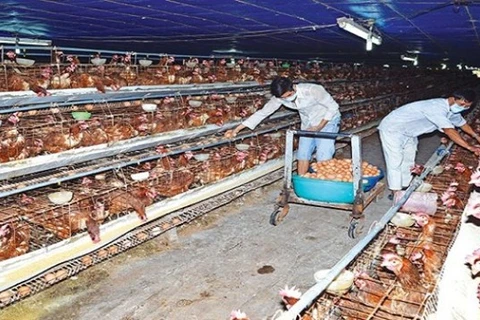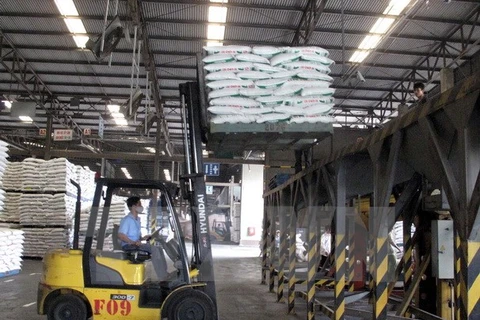As one of the most vulnerable sectors to be economically impacted with the Trans-Pacific Partnership (TPP) approaching, the livestock industry must move towards improving competitiveness to avoid being defeated.
Luckily enough, there was time for preparation, Doan Xuan Truc, Vice President of the Vietnam Animal Husbandry Association, said on October 16 at a conference held within the framework of the two-day VIETSTOCK Confex 2015.
"It is a golden opportunity to hasten the restructuring of the livestock industry, while lowering prices and enhancing quality and hygiene," Truc said, quoting Deputy Minister of Industry and Trade Tran Quoc Khanh, and added that there would be roadmap for tariff liberation and the industry would have at least 10 years for preparations ahead of zero duty.
The association anticipated rises in imports of many husbandry products from partner countries with free trade agreements (FTAs) when tariffs are liberalised, including frozen beef from the United States, Canada, and Australia, in addition to India and New Zealand, milk and powder products from Australia and New Zealand, frozen pork from the US, Spain, Denmark and frozen chicken from the US, Korea and Thailand.
Challenges would be severe, given the industry's small-scale production, low productivity, dependence on imported inputs, disease risks, inadequate restructuring efforts and lack of understanding of involved firms and farmers, experts at the conference pointed out.
"The challenges should be viewed as opportunities for the livestock industry to grow up," Ngo Chung Khanh, Deputy Director of the Ministry of Industry and Trade's Department and Multilateral Trade Policy said.
At the conference, experts raised three sets of solutions for the livestock industry to cope with economic integration's impacts, which included technical, restructuring and policy measures.
Among the measures, experts stressed the importance of improving quality of livestock breed and the development of the value chain for the livestock industry as breakthrough solutions.
According to Le Ba Lich, President of the Animal Feed Association, improving food hygiene and safety is the number one factor while competing with imported products, followed by prices and other factors.
The livestock industry involved 11.3 million households, or more than 60 percent of the country's population.
VIETSTOCK Confex 2015 was the Vietnam's leading feed, livestock and meat industry show jointly held by UBM Asia and the Vietnam Animal Husbandry Association. The show provided knowledge and technical updates for participants in the livestock industry.-VNA

























